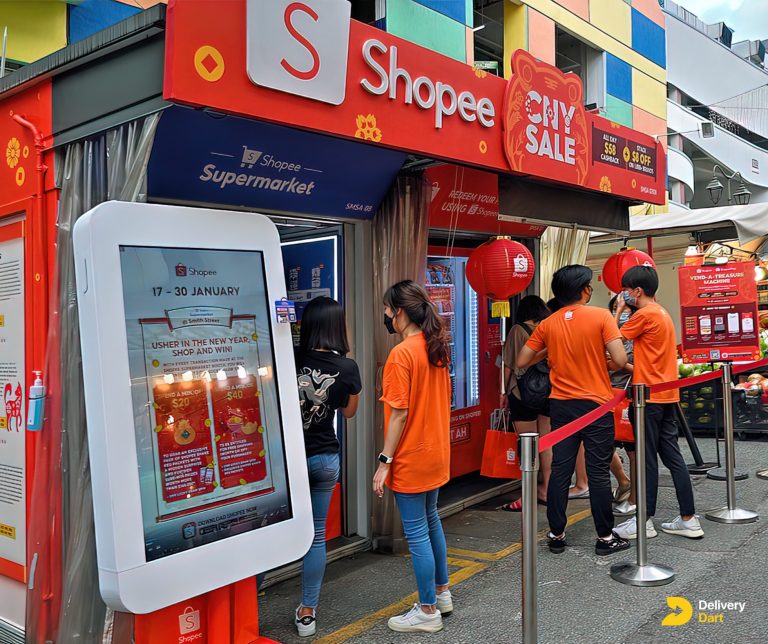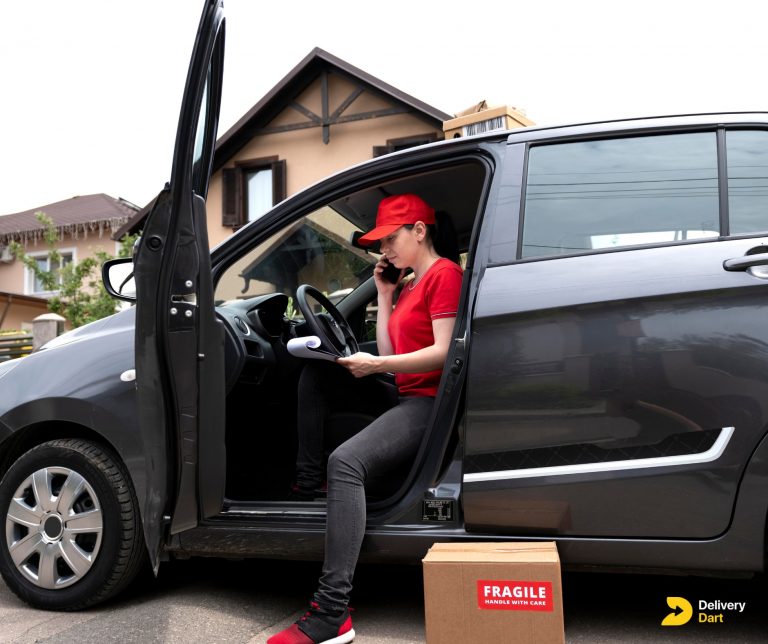Imagine being able to know exactly where every one of your vehicles is at any given moment. No more guessing, no more worrying about delays or lost time. That’s the power of a GPS tracking system, and it’s becoming a game-changer for businesses of all sizes.
Whether you’re managing a few delivery vehicles or an entire fleet, keeping track of your assets is essential. But here’s the catch: with so many options out there, the cost of a GPS tracking system can feel overwhelming. How much should you actually be paying? What features are truly worth it?
If you’re not careful, you could end up overspending on fancy features you don’t need—or worse, underinvesting and missing out on tools that could save you money in the long run. But don’t worry, we’re here to break it all down for you in simple terms. In this guide, we’ll walk you through what goes into GPS tracking system prices, what features matter most, and how you can make the right choice for your business without breaking the bank.
By the end of this post, you’ll not only understand the different price points but also see how companies like DeliveryDart are using GPS technology to optimize their operations and boost their bottom line. Ready to discover how you can do the same? Let’s get started.
What is a GPS Tracking System?
So, what exactly is a GPS tracking system, and why does everyone in the logistics world seem to swear by it? At its core, a GPS tracking system is like having an all-seeing eye on your vehicles. It uses satellites to pinpoint the exact location of each vehicle in real-time, allowing businesses to monitor their fleet’s movement, track deliveries, and ensure everything is running smoothly.
But it wasn’t always this easy. GPS (Global Positioning System) technology was originally developed by the U.S. military in the 1970s. Fast forward to today, and it’s evolved into a powerful tool that’s available to everyone, helping businesses optimize their operations and reduce costs. Now, it’s a must-have for any company managing deliveries, logistics, or mobile teams.
Here’s why GPS tracking systems have become so crucial in today’s business landscape:
- Efficiency at Your Fingertips: Imagine being able to reroute a driver instantly to avoid traffic, monitor delivery progress in real-time, or reduce idle time. That’s the kind of control GPS tracking offers.
- Cutting Costs, Boosting Profits: With better route planning, companies can reduce fuel consumption, prevent unnecessary detours, and ultimately save money.
- Customer Satisfaction: Customers love knowing exactly when their delivery will arrive. A GPS tracking system makes it possible to give them accurate ETAs, boosting trust and loyalty.
And here’s the best part: businesses that adopt GPS tracking systems see real results. A 2023 report by Fleet Complete found that companies using GPS tracking saw a 20% reduction in fuel costs and a 25% increase in fleet productivity. Those are numbers that speak for themselves.
Factors Influencing GPS Tracking System Prices

When it comes to GPS tracking systems, one size definitely doesn’t fit all. Prices can vary depending on several factors, and understanding them will help you avoid overpaying for things you don’t need—or missing out on features that could really help your business. Let’s break down the key factors that influence the cost of GPS tracking systems.
Hardware Costs
This is the backbone of your GPS system—the physical device that gets installed in your vehicles. The price of the hardware can vary depending on the complexity of the system. Basic GPS units, which simply track location, will cost less, while more advanced models that include sensors or engine diagnostics will naturally be pricier. Think of this as your starting point—the better the hardware, the more reliable the tracking.
Software Costs
GPS tracking isn’t just about the device in your vehicle—it’s also about the software that interprets the data. Some companies offer basic software, which gives you standard tracking and location info. But if you want more advanced features like real-time traffic updates, fleet analytics, or route optimization, expect to pay a bit more. It’s all about what kind of visibility and control you want over your fleet.
Installation Costs
Here’s a cost that can sometimes be overlooked. Depending on the type of system, there may be installation fees, especially if you’re going for a more complex setup that requires vehicle integration. Simple plug-and-play devices will keep this cost low, while more permanent installations might require professional help.
Monthly/Subscription Fees
Most GPS tracking systems come with a monthly or yearly subscription fee. This fee covers things like real-time tracking, data storage, and software updates. The more advanced your needs (like live tracking or extensive reporting), the higher this fee will be. It’s important to factor in this ongoing cost, as it’s a big part of the total price.
Maintenance Costs
Like any technology, GPS tracking systems require upkeep. Over time, you might need to replace hardware or update software to ensure everything runs smoothly. These long-term costs should be considered when evaluating the overall price of a system.
Additional Features
Lastly, the bells and whistles. Many systems offer extra features such as geofencing (setting virtual boundaries), live tracking, and route optimization, which can be incredibly useful for businesses managing large fleets or complex delivery routes. Naturally, more features = higher costs, so it’s important to choose wisely based on what will really add value to your operations.
Different Types of GPS Tracking Systems and Their Price Ranges
When it comes to GPS tracking systems, there’s something for every budget—whether you’re running a small business or managing a large fleet of vehicles. The key is knowing what type of system suits your needs and how much you should expect to pay. Let’s break it down:
Basic GPS Tracking
If you’re just starting out or have minimal tracking needs, a basic GPS system might be all you need. These are perfect for smaller businesses or individuals who just want to know where their vehicles are at any given time without any fancy extras. They typically offer location tracking, but not much beyond that.
- Price Range: $50 – $150 per device, with minimal software fees. It’s an affordable option, but keep in mind that the features are limited. You’ll get the basics, but if your business grows, you might need to upgrade.
Advanced GPS Tracking Systems
Now, if you have a larger fleet or need more detailed insights—like real-time data, analytics, or route optimization—you’ll want to step up to an advanced system. These systems not only track location but also provide valuable data to improve efficiency, such as driver behavior, fuel consumption, and vehicle diagnostics.
- Price Range: $200 – $500 per device, plus monthly subscription fees ranging from $10 to $50. The monthly fees cover live tracking, data storage, and software updates, so this option is ideal for businesses that need detailed fleet management without breaking the bank.
Integrated Fleet Management Systems
For those managing large fleets or complex operations, integrated fleet management systems are the way to go. These systems do it all—GPS tracking, vehicle telematics, real-time traffic updates, and full integration with your business operations. It’s a comprehensive solution for companies that need to monitor every aspect of their fleet’s performance.
- Price Range: $500 – $1,500 per device, with higher subscription fees starting at $50 per month. While the upfront costs and subscription fees are higher, the benefits are substantial. These systems offer deep insights that can help you streamline operations, save on costs, and maximize efficiency across the board.
Fun Fact: The global GPS tracking device market was valued at $2.2 billion in 2021 and is projected to reach $4.3 billion by 2026, growing at an impressive 14.2% CAGR (Source: MarketsandMarkets). This shows just how crucial GPS tracking has become across industries.
How GPS Tracking Systems Add Value to Businesses

Investing in a GPS tracking system isn’t just about knowing where your vehicles are—it’s about unlocking a whole range of benefits that can transform how your business operates. Here’s how GPS tracking systems can add real value to your bottom line:
Cost Savings
One of the biggest perks of GPS tracking is the significant cost savings it brings. With better route planning and real-time updates, your drivers can avoid traffic jams, reduce idle time, and stick to the most efficient routes. This leads to a reduction in fuel consumption, fewer overtime hours, and even lower vehicle maintenance costs since your fleet will be running more smoothly. These savings can add up fast!
Increased Productivity
Imagine being able to tweak delivery routes on the fly based on traffic conditions or last-minute changes. With a GPS tracking system, you can do just that. Real-time data allows you to make instant adjustments, which means fewer delays, more deliveries, and a more efficient use of your resources. It’s like having a bird’s-eye view of your entire operation, allowing you to get more done with the same number of vehicles.
Improved Customer Satisfaction
In today’s fast-paced world, customers expect accurate delivery times. No one likes to wait around, wondering when their package will arrive. GPS tracking helps you provide customers with precise ETAs, which means they can plan their day around the delivery. Better yet, when you stick to these accurate timelines, you build trust and boost customer satisfaction—both crucial for repeat business.
Enhanced Security
Security is a big concern for any business with a fleet of vehicles on the road. GPS tracking systems offer peace of mind by providing real-time alerts in case of unauthorized vehicle use or theft. If something goes wrong, you can track the vehicle’s exact location and take swift action. This layer of security can prevent loss, protect your assets, and reduce the risk of theft.
By offering cost savings, improved productivity, better customer experiences, and enhanced security, GPS tracking systems quickly pay for themselves. Businesses using GPS tracking report major benefits, with many experiencing a 25% increase in fleet productivity and a 20% reduction in fuel costs (Fleet Complete, 2023). It’s clear that GPS tracking is more than just a tool—it’s a valuable asset that can propel your business forward.
Choosing the Right GPS Tracking System for Your Business
Choosing the perfect GPS tracking system for your business can feel like a big decision, but it doesn’t have to be overwhelming. The key is knowing what you need and picking a system that can grow with you. Let’s walk through the things you should consider before making your choice:
Assessing Your Needs
First things first—how big is your fleet, and what level of tracking do you actually need? If you’re managing just a few vehicles, a basic GPS system might do the trick. But if you have a larger fleet or require detailed insights (like driver behavior or fuel usage), you’ll want to look for something more advanced. Make sure to balance your budget with the features you truly need—there’s no point in paying for extra bells and whistles if you won’t use them.
Scalability
Your business might be small now, but what happens when you grow? It’s important to choose a system that can scale with you as your fleet expands. Look for a GPS tracking solution that can easily handle more vehicles or additional features without a lot of hassle. You don’t want to outgrow your system too quickly and end up having to switch down the line.
Customer Support
No matter how good the technology is, things can still go wrong from time to time. That’s why it’s crucial to choose a provider with reliable customer support. Whether you need help troubleshooting or have questions about new features, having a team that can quickly assist you will save you from headaches in the long run. Don’t overlook this—great support can make or break your experience with a GPS tracking system.
Compliance with Regulations
Depending on where your business operates, there may be specific regulations for fleet management. Make sure the system you choose complies with any local, regional, or national laws to avoid fines or penalties. This is especially important if you’re handling sensitive cargo or operating in highly regulated industries like food delivery or healthcare.
Trial Periods & Reviews
Before diving into a long-term contract, it’s always a good idea to test things out. Many GPS tracking providers offer free trials or demo periods so you can get a feel for the system and see if it fits your needs. Also, don’t forget to check out reviews from other businesses similar to yours—real user feedback can give you insights that you might not have considered. It’s always better to test the waters before fully committing.
By keeping these factors in mind—assessing your needs, ensuring scalability, checking for good customer support, staying compliant, and taking advantage of trials—you can confidently choose a GPS tracking system that not only fits your business today but grows with you into the future.
Ready to Track Your Way to Success?
Investing in a GPS tracking system isn’t just a smart move—it’s a game-changer for your business. From cutting costs and boosting productivity to improving customer satisfaction and enhancing security, the benefits are clear. As technology continues to evolve, tools like GPS tracking are no longer just for big corporations. They’re accessible to businesses of all sizes, helping you stay ahead of the competition. And whether you’re just starting out or scaling your operations, choosing the right system will set you on the path to smoother, more efficient management.
Companies like DeliveryDart are already leveraging the power of GPS technology to streamline their deliveries and improve their bottom line. Now, it’s your turn. With the right system in place, you’ll have the insights and control to drive your business forward—faster and more efficiently than ever before. So, are you ready to track your way to success? The future of fleet management is just a few clicks away!



